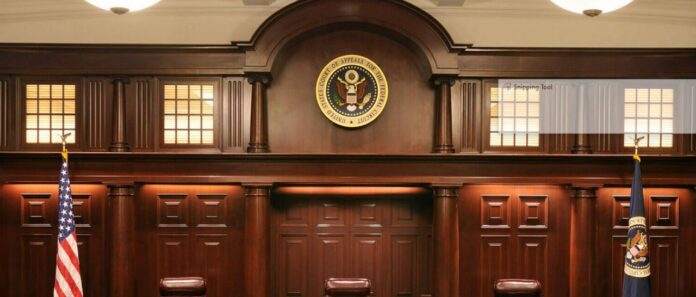BOSTON – In a significant legal setback for the Trump administration, the 1st U.S. Circuit Court of Appeals on Tuesday dismissed an emergency appeal to reinstate a broad suspension of federal funding. This decision follows a ruling by U.S. District Judge John McConnell, who found that the administration hadn’t fully complied with an earlier court order to unfreeze federal grants and loans.
The appeal sought to halt federal funding, including FEMA money allocated to New York City for housing migrants, which the administration argued was being mismanaged. The Justice Department had characterized the lower court’s intervention as “intolerable judicial overreach,” claiming it impeded the executive branch’s authority over federal spending.
Also Read: U.S. Court Rules Against Use of Copyrighted Material for AI Training
The legal battle stems from a lawsuit filed by nearly two dozen Democratic-led states against a Trump administration memo that aimed to stop all federal grants and loans, disrupting programs across the nation. Although the memo was later rescinded, Judge McConnell noted that not all funding had been restored, particularly affecting areas like early childhood education, pollution reduction, and HIV prevention research.
McConnell, an appointee of former President Barack Obama, had ordered the immediate unfreezing of all federal grants and loans, also preventing cuts to funding at the National Institutes of Health. Despite this, the Justice Department argued that such judicial actions were undermining the executive’s lawful authority to manage discretionary spending and address fraud.
The administration’s broader aim was to align federal spending with President Trump’s priorities, including boosting fossil fuel production, altering protections for transgender individuals, and dismantling diversity, equity, and inclusion initiatives.
This case is part of a series of judicial rebuffs to Trump’s policies, including blocks on ending birthright citizenship, access to certain Treasury Department records, and a plan for mass deferred resignations among federal employees.
Meanwhile, the states involved in the lawsuit have stressed the urgent need for the funds, arguing that the withholding of Congressionally approved money is causing tangible harm to their residents. They have pushed for the case to continue under McConnell’s jurisdiction, where further clarification on the original order is expected.
The legal back-and-forth underscores the ongoing tension between the Trump administration’s policy directives and judicial oversight, highlighting significant implications for federal spending and the separation of powers.
Key Points:
Appeals Court Decision: The 1st U.S. Circuit Court of Appeals rejected the Trump administration’s attempt to reinstate a pause on federal funding.
Background: This ruling follows a decision by Judge John McConnell, who found the administration did not fully comply with an order to unfreeze federal grants and loans.
Funding in Question: The funding includes FEMA money for New York City for migrant housing, which the administration had concerns about.
Justice Department’s Stance: The department argued that the judicial interference was an overreach, limiting the executive’s spending authority.
Legal Context: The lawsuit stems from an administration memo aiming to halt all federal grants and loans, causing widespread disruption. The memo was later rescinded, but not all funding was restored.
Affected Programs: Funds for early childhood education, pollution control, and HIV prevention research remain frozen, according to the states involved.
Broader Implications: This case is part of several judicial reviews of Trump’s policies, including attempts to change birthright citizenship, access to government records, and federal employee resignations.
States’ Argument: The states assert that the president cannot block congressionally approved funds, stressing the negative impacts on residents.
Next Steps: The appeals court expects Judge McConnell to clarify his original order, with the case continuing under his supervision.



